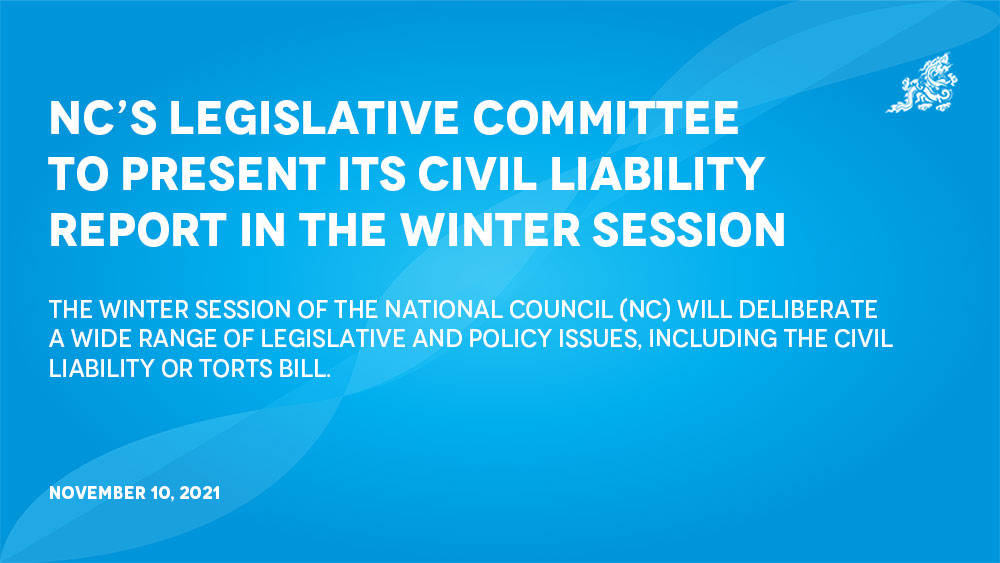MB Subba
The winter session of the National Council (NC) will deliberate a wide range of legislative and policy issues, including the Civil Liability or Torts Bill.
In its last session, the House had decided to draft the proposed Bill in view of the failure of concerned agencies to take action against the tortfeasors and the lack of compensation for victims from the concerned parties in accidents resulting in death, injury, and loss of public property.
The legislative committee, which was entrusted with the task of drafting the Bill, will submit a review report for deliberation in the winter session and the Bill is expected to be tabled in the summer session.
The committee’s chairperson, Phuntsho Rapten, said that it was a technical Bill that needed a thorough background study before finalising a draft for presenting in the House. “We can’t start drafting the Bill immediately,” he said, adding that the Bill is important.
According to the committee, the country lacks precedents in such cases although some of the existing Acts contain provisions governing compensations.
Phuntsho Rapten explained that some of the domestic laws like the Labour and Employment Act 2007 have provisions for providing compensation for victims of unfortunate accidents, and that they need to be studied properly.
“We are studying similar laws from various countries,” he said.
As part of the drafting process, the committee has met with the relevant stakeholders, including the Office of Attorney General (OAG) and the Royal Bhutan Police (RBP).
The meetings also sought the stakeholders’ input in drafting of the Bill.
According to some members, a number of mishaps occurred in the recent past, but no accountability was determined. The proposed Bill is expected to address the ongoing predicament faced by the victims of civil wrongs.
One of the examples cited is the 22 cases of infant deaths in 2019 in the Neonatal Intensive Care Unit (NICU) of the national referral hospital, in which many parents alleged poor hygiene practices, and unprofessional handling of newborn babies.
Meanwhile, as part of the preparation for the session, the Social and Cultural Affairs Committee (SCAC) is meeting dzongkhag officials, teachers and students among other stakeholders on “suicide and mental health issues.”
According to the committee, some of the stakeholders highlighted that the use of alcohol was a significant cause of mental health and suicides. The other factors included extra-marital issues, social media exposure, relationship issues, peer pressure and academic pressures.
The committee’s chairperson, Lhaki Dolma, said that a report would be presented in the upcoming session for deliberation. “Extensive consultation meetings have been held.”
The important Bills that the NC will deliberate in the winter session include the Anti-Corruption (Amendment) Bill of Bhutan 2021.
One of the main issues in the Anti-Corruption Bill is the provision that allows the RBP and the OAG to investigate corruption cases.
The Bill initially did not have the provision but it was incorporated under Section 119 by the good governance committee of the House to address the shortage of human resources in the Anti-Corruption Commission.
The House is reviewing the Bill, which was passed by the National Assembly last session.


